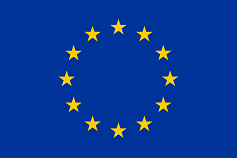GEN4OLIVE reúne a un consorcio amplio, interdisciplinario y transdisciplinario de 16 socios de 7 países diferentes, incluidos los Bancos de Germoplasma internacionales de los 5 principales países olivareros para aprovechar sinergias con el fin de lograr los objetivos del proyecto.
The UCO is one of the key agents involved in the World Olive Germplasm Bank of Cordoba (WOGBC), which was established in 1970 and it is currently the largest olive germplasm bank. UCO holds the role of Project Coordinator and, as main responsible for the project, it will provide an academic multidisciplinary profile to the Consortium, being responsible for WPs 1, 3, 4, 10 and 11.
SCI is a Spanish company focused on agronomic management and R&D
activities. It will apply their results from their previous R&D projects and olive breeding in WPs 1, 3 and 6, while carrying out other cross-cutting activities related to results exploitation and communication.
BALAM | AGRICULTURE is currently a Spanish leader in olive breeding. It is in charge of WP 9, devoted to communication, dissemination and exploitation of project results and it is also involved in collecting end-users’ needs and engaging them in the project activities.
CREA is the responsible entity for the Italian Germplasm Bank. In the framework of this project, CREA’s main role is: a) characterisation of cultivars that belong to the Italian GB; b) characterisation of domesticated and wild genotypes,
authentication and cataloguing of the varieties available in the Italian GB; c) classification of all olive cultivars (all GBs) regarding the resistance against Xylella; and d) characterisation and authentication of selected ancient olive trees of the Italian area.
The UGR, through its Ecology Department is responsible for WP 2 focused on the characterization of wild olives and setting up core reference collections of wild material that can then be later incorporated into breeding programs.
The Evolution and Biological Diversity and the Centre for Functional and Evolutionary Ecology will take part in this project. Their main role in the project will be: a) the
identification and characterisation of wild and ancient olives (in situ); b) the establishment of a wild olive seed bank network.
DEMETER holds the Greek Germplasm Bank. In the framework of the project, DEMETER is responsible for WP5, perfectly aligned with some of their core research lines, such as climate change effects prediction and implementation of Genetic x Environment interaction studies.
INRA is responsible for the Moroccan Olive Germplasm Bank. Its main tasks in the project are as follows: a) characterisation of cultivars that belong to this GB; b) characterisation of domesticated and wild genotypes, authentication and cataloguing
of the varieties available in the GB of Morocco; and c) characterisation and authentication of selected ancient olive trees of the Moroccan area.
The biotechnology company Cambrico Biotech develops new technologies, products and services based on genomics and molecular biology. Its main role in the project is the identification of the biomarkers for selecting the progress resilient to Verticillium and Xylella in an early stage (in the first 2-3 months of seedling).
FOCOS’ main business line is the strategy consultancy for the food industry. It is responsible for WP8, thus in charge of co-creation and capability-building activities.
UJA is represented in the project by the Ecology, Evolution and Conservation of Mediterranean Vegetation Research Group. Its main tasks are as follows: a) the characterisation of wild olives and setting up core reference collections of wild material that can then be later incorporated into
breeding programs; b) the identification of bio-markers for accelerating the breeding process (early selection of the progenies).
ORI is the responsible entity for Turkish Germplasm Bank, so some of their main activities within the project are: a) characterization of cultivars and varieties available in this GB; and b) characterization,
authentication of selected ancient olive trees.
FCTA, whose expertise is focused on advising, mentoring and funding innovation projects is responsible for WP 7 aimed at the organization of the two calls dedicated to the SMEs for involving them in olive pre-breeding actions and future breeding programs.
EFE is the largest Greek association of propagating plant material. The main tasks of EFE in the project are as follows: a) to collect the needs of nurseries and their contributions to the project; b) to carry out dissemination and communication actions to transmit the results of the project to the end-users; and c) to collaborate with the
consortium in other technical tasks (e.g. definition of the interface).
The main role of ANKU in the project is: a) the development of techniques to short the juvenile phase of olive plant and consequently to accelerate the breeding process; and b) to provide support in WPs 1, 3, 5 and 6.
The Dipartimento di Informatica of Sapienza has been selected by the Italian Ministry of Research and Education as the Department of Excellence 2018-2022.
SAPIENZA University is responsible for WP 6. They will develop the GEN4OLIVE interface where all the project findings will be digitalized for the end users and two
applications for determining olive varieties and diseases through images.

This project has received
funding from the European
Union’s Horizon 2020 research
and innovation programme
under grant agreement No. 101000427

Login to your account

Login to your account